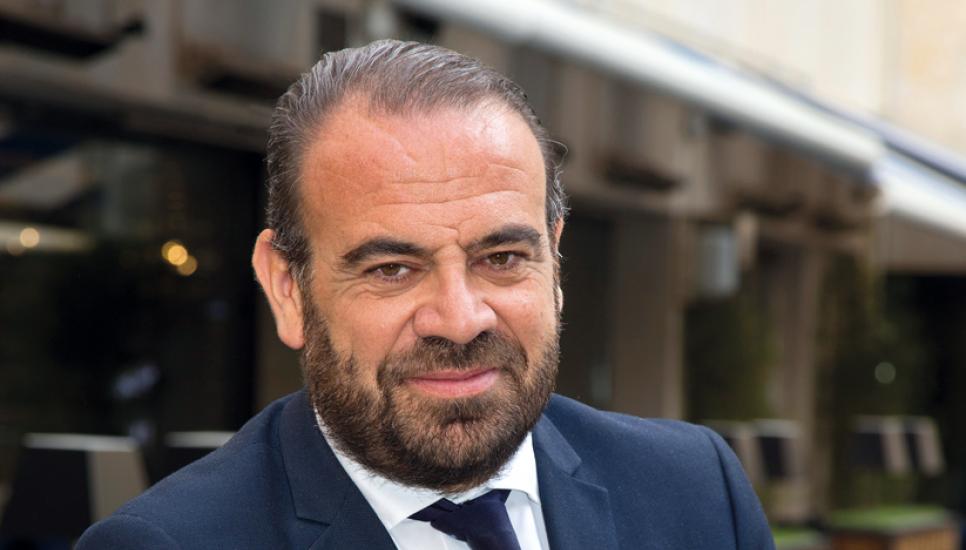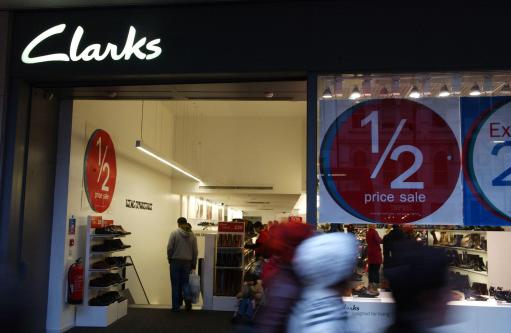FB Roundup: Melia, Otto Group, Clarks

Digitalisation, flexibility and safety keep Melia’s doors open against drop in revenue
Spain’s Escarrer family is determined to improve the competitiveness and efficiencies of its global hotel business after counting the cost of the “terrible” impact of the Covid-19 pandemic on the travel industry.
Gabriel Escarrer Jaume (pictured), 49, second generation executive vice president and chief executive, counted the cost of the impacts on Melia Hotels International this week. Melia generated revenues of €430.3 million up to September 2020, a cliff-edge drop of 69% compared to the first nine months of 2019. Saving graces came from the group’s digital transformation efforts, with 60% of sales through melia.com, 82% of those by members of the MeliaRewards loyalty programme.
With just over half (51%) of the 99,162 rooms available around the world in the third quarter of 2020 compared to the same three-months in 2019, Melia earned €111.1 million ($132 million) in revenue, still an improvement on the second quarter of this year.
Escarrer said the Melia contingency plan of driving competitiveness and efficiencies guaranteed the business stayed afloat in the short-term, given market uncertainty and drop in demand.

“An agile management of hotel openings combined with flexibility, safety (through the Stay Safe With Melia-programme) and our sales capacity, have allowed us to maximise the number of hotels open—157 at the end of September—and their results, with 100% of the opened hotels meeting the criteria of recovering jobs and business activity without negatively affecting the viability of the company,” Escarrer said in a statement.
The family’s outlook for the remaining fourth quarter of 2020 was unclear, given new national lockdowns in European countries while almost all the group's hotels in Mexico (pictured) and the Dominican Republic planned to be open in December.
The family business cautiously maintained its forecast of seeing Easter 2021 as the “turning point" for the possible start of a gradual recovery.
In the long term, Escarrer said the company had begun a strategy review, “reinforcing its basic strengths in terms of solvency, talent, digitalisation, brand diversification and a renewed hotel portfolio, which will place it in an unbeatable position to take advantage of the growth opportunities that will emerge due to the foreseeable consolidation of the industry after the pandemic.”
 Otto Group ‘bounces back’ off e-commerce acceleration
Otto Group ‘bounces back’ off e-commerce acceleration
The German family-owned retail and services business Otto Group says it “bounced back” from a sharp fall in revenues in March as the year progressed thanks to e-commerce.
The €14.3 billion ($17 billion) group, which counts Hermes, Bonprix and Frankonia among its brands, reported a strong rise in online demand for furniture and consumer electronics, as well as for parcel services as a result of the coronavirus pandemic. In the first half of its financial 2020, revenues climbed 12% globally and almost 14% in Germany compared to the same half in 2019. The bounce in revenues was put down to e-commerce which increased by 20% both globally and in Germany. Not surprisingly, Otto’s fashion retail brands dragged on the group’s finances.
Otto’s e-tail growth was based on the development of its otto.de platform. More than 500 new retailers signed up to operate on the website and it gained more than a million new customers this year. The group expected to beat its target of 1,000 new retailers by the end of 2020 and was setting up its own payments subsidiary.
Michael Otto (pictured), 77, chairs the supervisory board of the Otto family business. The son of his late founding father, Werner Otto, was chairman and chief executive of the group from 1981 to 2007.
Michael Otto serves on the 20-strong supervisory board with his brother Alexander Otto, 53, a majority shareholder and chief executive of the Otto family-controlled commercial real estate firm ECE Group. Also on the board is Michael’s son Benjamin Otto, 45, an entrepreneurial businessman with interests in startups and the Otto Group’s strategic direction. Michael’s daughter, Janina Ozen-Otto, 47, founded the Ana Kwa Ana Foundation in 2009, dedicated to helping African HIV/Aids orphans and street children, as well as promoting the rights and independence of women.
 Clark family rescue shoe business with LionRock Capital deal
Clark family rescue shoe business with LionRock Capital deal
The UK’s Clark family looks set to relinquish majority control of its 195-year-old shoe brand to LionRock Capital, with its knowledge of Chinese and Asia-Pacific markets, in a £100 million deal after losses from high street retail during the pandemic.
C&J Clark Ltd, based in Somerset and commonly known as Clarks, announced this week its $131.5 million agreement to form a partnership with the Hong Kong private equity firm which has a track record of investing in consumer companies. Pending shareholder approval in December, LionRock will acquire a majority stake in Clarks, with the Clark family to remain invested in the business.
Giorgio Presca (pictured), 56, non-family chief executive of Clarks since 2019, said the new partnership with LionRock will create a sustainable future for the brand.
“Our strategy is designed to put the consumer at the heart of everything we do through a focus on brand segmentation and revitalising our brand communications, digital experience and product design to create consumer desire,” Presca said.
“The challenges to our business brought on by Covid-19 have meant that we need more resources and investment in order to fully deliver this strategy and safeguard the future of our business. The new partnership with LionRock Capital will provide this as well as the expertise to grow the Clarks brand in China, which remains a primary opportunity.”
 No stores will close immediately and employees and suppliers will continue to be paid, Clarks said. However, 60 of its 320 stores will move to paying no rent under the company voluntary arrangement and the rent for the remainder of the outlets will be calculated on the amount of cash through tills.
No stores will close immediately and employees and suppliers will continue to be paid, Clarks said. However, 60 of its 320 stores will move to paying no rent under the company voluntary arrangement and the rent for the remainder of the outlets will be calculated on the amount of cash through tills.
Quaker brothers Cyrus and James Clark made a slipper from sheepskin off-cuts in the Somerset village of Street and started their family business in 1825. Their descendants own 84% of the company.
The family business closed its remaining UK factory in 2019. Its penultimate plant closed in 2006 as production moved to the Far East.
Irene Pedder, chair of the Clark Family Shareholder Council, said the impact of the ongoing Covid-19 crisis had resulted in “necessary steps” being taken to safeguard the future of the Clarks brand, business and people.
“We remain invested in Clarks’ long-term growth and will remain committed shareholders to help steward this iconic company into its third century, while protecting the strong values and brand heritage Clarks is known for.”






